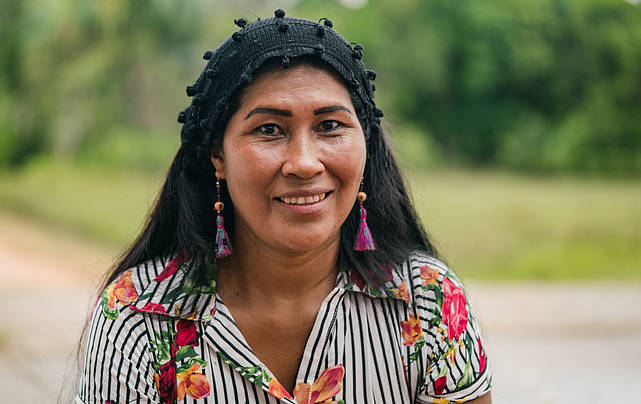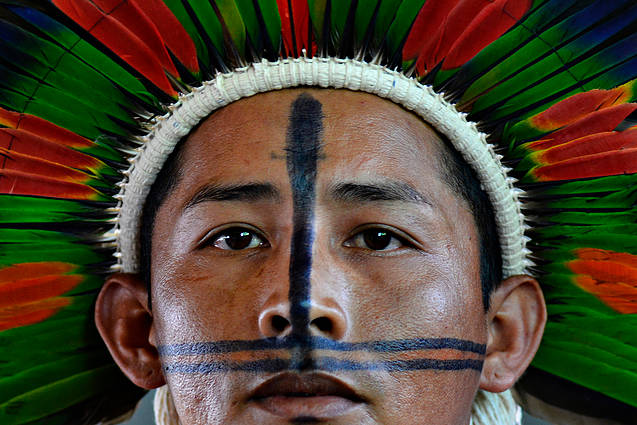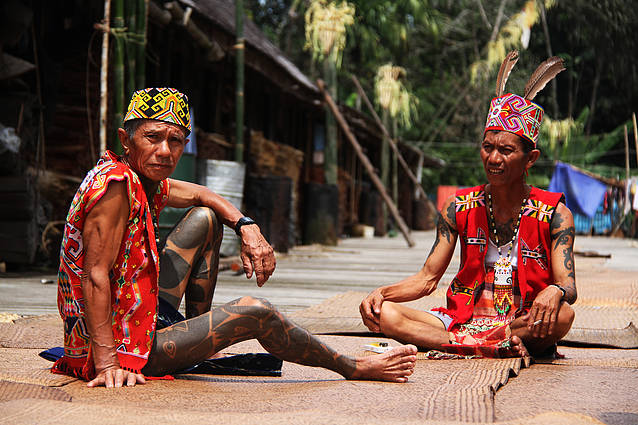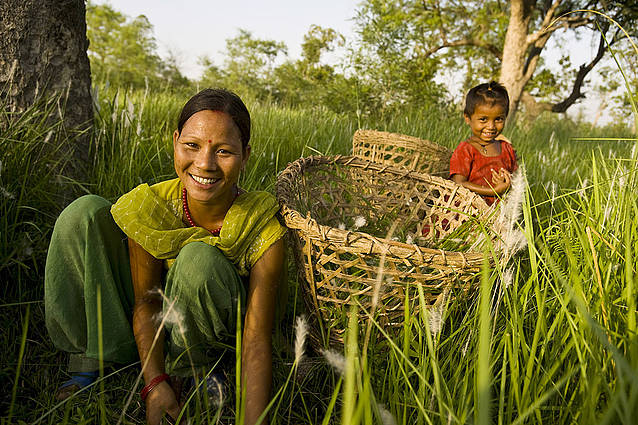Communities and indigenous peoples at the centre of conservation success
Through our years of work, we know that conservation and indigeneous people can work in harmony and approaches designed together with communities and indigenous peoples creates sustainable management of natural resources. Understanding the links between local people and their environment allows us to identify, avoid and mitigate the social and environmental risks of our work, and most importantly ensure the needs and aspirations of the indigenous and local communities are a foundation on which our conservation programmes are built.
Indigenous peoples and local communities have made enormous contributions to the maintenance of some of the Earth’s most fragile ecosystems. Today they are challenged by many of the same forces that threaten nature, such as pressures from extractive industries and infrastructure development. Climate change and other global trends are likely to accelerate the loss of the natural habitats and resources upon which they depend.
Through our years of work, we know that conservation approaches designed with communities and indigenous peoples can help mitigate any negative social impacts while providing lasting incentives – and benefits – for sustainable management of natural resources.
In many places we work directly with communities and indigenous peoples to support them to manage the natural resources they depend on and protect those resources against emerging threats, in a way that’s good for people and nature alike.
That might mean supporting efforts by local communities to secure access to clean energy, so there’s less of a need to cut down wildlife-rich forests for fuel. Or helping train smallholder farmers on sustainable farming practices that improve their yields while reducing impacts on vital rivers. Or ensuring communities are benefitting directly from tourists coming to see endangered wildlife.
We also offer support on influencing relevant policy and promoting community participation in decision-making processes in country in line with national legal frameworks.
What is the relationship between people and their environment?
It is important to understand the links between people and their environment.
Appreciation of communities’ contributions to biodiversity conservation, their traditional knowledge and respect and recognition of their rights, interests and cultures is at the centre of our enhanced Environmental and Social Safeguards Framework (ESSF), adopted by WWF in August 2019. It formalises our efforts that began over twenty years ago with the first social policy commitment.
Safeguards help to identify, avoid and mitigate any negative social and environmental impacts of our work, and most importantly use the needs and aspirations of the indigenous and local communities as a foundation on which our conservation programmes are built.
The framework establishes a common set of standards, policies, planning and implementation mechanisms, and compliance systems that govern how activities on-the-ground are carried out. It builds on our social policies and is mindful of the different challenges and needs in different parts of the world.
The Environmental and Social Safeguards Framework has been adopted by the entire WWF Network to ensure consistent, comprehensive application of safeguards across all that we do.
Respecting the rights of indigenous people and local communities
Our Environmental and Social Safeguards Framework (ESSF) ensures the rights of people are promoted through the Standards that underpin our framework. These standards outline:
- Our commitment to engaging potentially affected peoples in the design and implementation of projects, ensuring diversity in the voices heard
- Develop mechanisms to allow affected peoples to bring forth concerns about how they are being impacted by WWF projects (see WWF’s reporting system)
- Identify and respond to physical relocation, restriction of access, and economic displacement or other economic impacts that may be triggered by WWF projects
- Ensure that all due consideration is taken in WWF projects that could potentially affect indigenous peoples’ rights, including free, prior, and informed consent where appropriate
- Review potential consequences to communities’ health and safety are addressed through the project, including consequences of engagement with rangers.
Our Social Policies further build on promoting the rights of people, not only in our projects on the ground, but our overarching and integrated policy position that guide the implementation of WWF’s agenda and partnerships.



